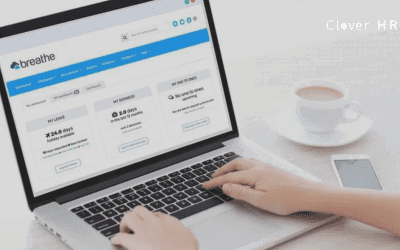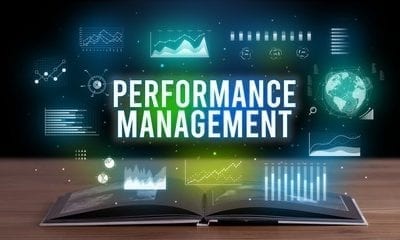Performance Management
- Home
- /
- HR Services
- /
- Performance Management
Request a callback
Talk to us about your management problems.
struggling to support your team to meet business objectives?
For managers tasked with delivering key business outcomes, a key challenge is leveraging the relationship between the people working in the organisation and the value they deliver.
Performance management is a way of engaging employees directly with their own work outcomes and ensuring that they understand how this contributes to wider business objectives. Aligned with organisational strategy and implemented well, it will improve collaboration between employees and teams and hold people to account for their performance.
Effective performance management relies on both formal and informal processes, is based on regular two-way discussion and open, supportive feedback of progress, towards objectives.
Why performance management matters
Discover the root of performance problems quickly
As the challenges that organisations are facing seem to be growing by the week, it is imperative that employees and teams are working productively and meeting business needs.
Delays in tackling underperformance or misaligned objectives have serious consequences and failing to support employees properly will result in absence, attrition and poor employee relations.
Employers that are alert to signs of inconsistent output are more able to remedy issues at an early stage and avert the serious consequences that can result when employees struggle.
Employees will often appreciate being given timely and honest feedback which bring with it an opportunity to adjust their work to meet the business need. An employee who is told they are not performing after many years believing that they were an integral cog will be disappointed, frustrated and much less likely to make the necessary adjustments.
How to manage performance
Roadmap: the best way forward
A coherent approach to performance management will generally involve three phases that prompt individuals and teams to improve their performance level:-
1. Planning and objective setting
Establishing and measuring individual goals that also align with company objectives allows managers to assess employee impact.
2. Progress monitoring
Managers and employees meeting regularly to engage in two-way discussion regarding areas for improvement and progress. These frequent check-ins enable managers to remedy issues before they become significant problems.
3. Review
Meeting employees for quarterly or biannual performance reviews. These informal meetings help managers accurately assess employee progress, achievements, and performance.
Learn more about HR
empower your team
Providing employees with practical ways to improve their work performances through constructive, corrective feedback empowers them and underpins a culture of excellence. A coherent and consistent approach to performance management can increase:
- Productivity
- Attendance
- Collaboration
- Creativity
- Retention
- Engagement
- Reputation
Increasing employees’ awareness of the impact that their work is having will also improve the quality of their work and promote autonomy and motivation.
Business leaders can incorporate the following performance management practices to help individuals sharpen their skills and develop their careers:
Set goals that matter
Identify objectives that are impactful and link clearly with overall business plans. Make sure that they are relevant to the job the employee is undertaking and make sense within the wider business.
Be positive
Treating employees with respect and empathy encourages open, frank and productive discussion. An employee who is given unhelpful, negative feedback will not be receptive to changing their approach. Managers should clarify misunderstandings, set expectations and coach employees through difficult periods.
Train & develop managers
Managers must have the skills to engage their employees in discussions about their performance. The way that they interact with employees will either inspire or disengage them. Training managers how to impact positively is crucial.
Be present and consistent
Regular conversations foster trust and don’t allow misunderstandings and problems to build up. Short, informal feedback meetings provide employees a measure of their performance and how well (or in some cases poorly) they are performing.
A performance management system that empowers employees to meet their potential should be a core process in every business. Regular feedback, support, and direction enables employees to deliver their own work effectively and contribute to a thriving, positive work culture where meeting objectives is seen as the norm.
Delivering superb HR consultancy services
Performance Management FAQ’s
Is there a standard model for performance management?
Generally the key elements of performance management are similar across different organisations and sectors but there isn’t a single best approach. There should be sufficient flexibility within the system to account for the different ways teams or functions operate and each organisation will need to develop practices that are relevant to their specific context, their organisational culture and the environment that they operate in.
Performance management is not a one off event but should be seen a continuous cycle, integrating a range of HR activities within an overarching framework to ensure the different elements work together.
What sort of objectives should be used in performance management?
Managers should ensure that the organisation’s top level strategic plan is the starting point, which will help to determine team priorities. Individual performance targets and development priorities will generally flow from these. Action plans can be drawn up to monitor performance, with key milestones and timescales to ensure that progress is measurable. Feedback and progress reviews should be regular, and may be supported by periodic formal performance reviews, and learning & development planning in support.
It may be desirable to set SMART targets, but sometimes objectives focused on behaviour or learning imperatives can be just as effective.
What problems should I anticipate in developing a performance management strategy?
All employees are different, and the way that they react to feedback is an important factor in determining how they engage with performance management process and whether it improves performance. The individual’s personality and their ability to handle frank feedback will play an important role.
Employees need to trust that they will be engaged in a fair and participative process that is flexible enough to take account of any changes that may arise which impact on their ability to deliver and is not just a tick box exercise.
What about appraisal? Where does that fit in?
Having remained a management tool staple for many decades, employers have started to question their reliance on appraisal and are looking to adapt their approaches to performance management. An increasingly held view is that traditional performance management practices such as annual appraisal are insufficient and need supplementing with more flexible approaches.
What happens if performance is poor or inconsistent?
Effective performance management provides managers with an opportunity to manage underperformance and should ensure that it is easier to identify problems at an early stage. Often this will enable issues to be rectified quickly and employees can be supported to get back on track.
Where problems are more severe, the performance management process will give relevant information to managers and allow them to move more easily into other HR processes such as capability procedures, occupational health support or disciplinary proceedings.
The link between performance and pay
The purpose of performance management should always be clear. Using performance data for pay purposes can be legitimate but the convergence of pay and performance processes needs to be handled carefully. An organisation wishing to implement performance related pay will need a clear and coherent pay procedure setting out how individual performance will be assessed for pay purposes.
Your local business coaching specialists
How Clover can help
If you need support establishing an effective and coherent performance management strategy the team at Clover HR can help you find an approach that fits both your strategic objectives and organisational culture.
We will work with you to determine your priorities and establish ways to engage your teams in goals setting, proactive monitoring and feedback to drive better performance.
We form strong relationships with our clients and actively partner with them to deliver positive change, creating a culture that gets the very best out of their people within a framework that protects both employer and employee.
ASK US A QUESTION
Performance management RESOURCES
Benefits of a HR System
What is HR software? HR software is a ‘human resource management system’ and essentially is a tool...
Organisational Development; A HR Perspective
What is Organisational Development? Organisational Development is a planned effort for a work...
Performance Management Tips and Techniques
Employees are critical to the success of companies and to achieve success, employees need to be...
Our Mission
To be outstanding, trusted people advisors and partners to business everyday
Through honest, focused, responsive and innovative HR support, we will transform people problems to solutions, enabling our clients to be employers of choice with an engaged and motivated workforce.



